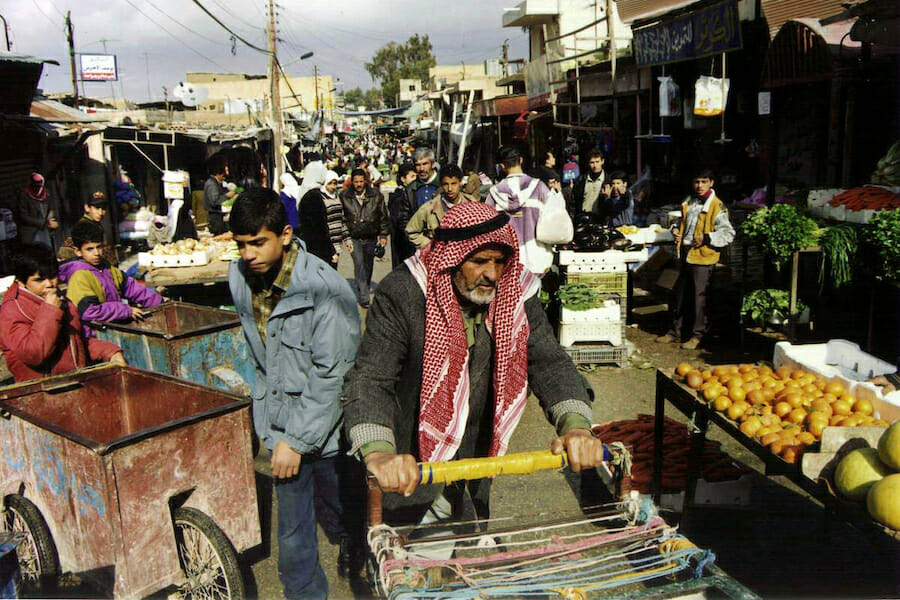
Trump’s Anti-Peace Moves Versus Palestinians
The Trump administration’s decision to end American funding to a United Nations agency that provides assistance to millions of Palestinian refugees was denounced broadly by international officials, former United States diplomats and Palestinians who were reeling from the elimination of a decades-long policy of support. The move seems to have been linked with a political trajectory used by President Trump to pressurize the hapless Palestinians to accept Trump’s action of moving the U.S. embassy from Tel Aviv to Jerusalem. Trump’s tactic against the Gazans will only increase their suffering and potentially setback U.S. goals in the region.
Hanan Ashrawi, a member of the executive committee of the Palestine Liberation Organization, said the cuts could destabilize refugee camps not only in the West Bank and Gaza but also in Jordan and Lebanon. Who is going to step in? If you want to hand them over to the religious schools, to Hamas, then you have to live with the consequences. “If you deprive people of their education, their health — their future — this is extremely serious and dangerous,” she said.
The United States said it canceled more than $200 million in aid for the Palestinians in the Gaza Strip and West Bank, leading their ambassador to accuse Donald Trump’s administration of being “anti-peace.” A senior State Department official said the decision, made “at the direction of the president,” came after a review of aid programs to the Palestinian territories.
The U.S. has been the largest donor to the United Nations Relief and Works Agency (UNRWA) – but now says the organisation is “irredeemably flawed.” Palestinian President Mahmoud Abbas’s spokesman has called the move a “flagrant assault against the Palestinian people.” However, an Israeli official told AFP: “Israel supports the U.S. move.” UNRWA says it currently supports more than five million Palestinians in Gaza, the West Bank, Jordan, Syria, and Lebanon, including providing health care, education and social services.
Trump’s aides initially debated whether to cut off all UNRWA aid, an unidentified U.S. official said, but those opposed argued that could further destabilize the region. The move “takes into account the challenges the international community faces in providing assistance in Gaza, where Hamas control endangers the lives of Gaza’s citizens and degrades an already dire humanitarian and economic situation,” he said.
This links to a wider disagreement over which Palestinians are refugees with a right to return to the homes they fled following the 1948 Arab-Israeli war. The UN says there are about five million Palestinian refugees, including the descendants of people who fled the 1948 war. However, the U.S. and Israel disagree with how this number is calculated and say the number of Palestinian refugees should be much smaller.
The Trump administration’s review of its funding for the Palestinians comes at a crucial time: President Trump moved the U.S. Embassy in Israel from Tel Aviv to Jerusalem, the eastern part of which the Palestinians claim as the capital of their future state (Israel claims it in its entirety.) The United States is on the cusp of releasing a new peace plan for the region and tensions between Hamas and Israel are at a permanent simmer. Amid all this live nearly 2 million Gazans who are reliant on aid having nowhere to go, and having few employment prospects (unemployment is more than 40 percent).
“I think people are feeling severely depressed by the situation,” said Andy Dwonch, who oversees operations in the Palestinian territories for Mercy Corps, a Portland, Oregon–based humanitarian organization. “The USAID funding cuts to NGOs like Mercy Corps … on top of the reduction in support from the U.S. government for UNRWA, piles on top of existing very poor economic conditions.”
UNRWA spokesman Chris Gunness voiced the agency’s “deep regret and disappointment” at the decision, which he said was surprising given that a December U.S. funding agreement had acknowledged UNRWA’s successful management.
“We reject in the strongest possible terms the criticism that UNRWA’s schools, health centres, and emergency assistance programs are ‘irredeemably flawed,” Gunness added in a series of Twitter posts. Sweeping new U.S. cuts in humanitarian aid to Palestinians are already hitting hundreds of thousands of the most vulnerable people, amid accusations that the Trump administration is using the issue to “blackmail” Palestinians into accepting a peace deal that critics say will favour Israel.
Disclosure of the scale of the crisis facing Palestinian aid comes amid reports that the U.S. is seeking to redefine which Palestinians should be regarded as “refugees” as part of its ongoing stand-off with UNRWA. One Palestinian National Authority source told the Guardian the latest cuts represented a “full-scale withdrawal of U.S. aid to Palestinians” with only the occupied East Jerusalem hospital network apparently exempted after pressure from U.S. evangelical groups.
The Arab League condemned a U.S. decision to end funding for the UN Palestinian refugee agency, UNRWA. In a statement, the Cairo-based league said the U.S. move “reflects a desire to take the issue of Jerusalem and refugees off the negotiating table between the Palestinians and Israelis.” “Washington will be responsible for the great harms caused by this decision to around five million Palestinian refugees who are dependent on the agency aid,” Arab League Secretary-General Ahmed Aboul-Gheit said.
In a related move, the Trump administration currently announced it would shutter the Palestine Liberation Organization’s office in Washington – a move that drew an immediate rebuke from Palestinian officials who said the White House is trying to bully them. In this year, it is the third consecutive move that President Donald Trump has taken against the Palestinians. In January, Trump announced his controversial decision of relocating the U.S. embassy from Tel Aviv to Jerusalem. Though Trump cites it as an “obvious” choice for the embassy to be located in Jerusalem, there is a reason past administrations have kept it in Tel Aviv. The United States has traditionally held that the status of Jerusalem should be determined by Israel and Palestine – not the U.S. – and if the country is going to involve itself it needs to approach the conflict as an impartial arbiter. By recognizing Jerusalem as the capital of Israel, the U.S. has in effect taken sides which could hinder its ability to broker a solution.
“You’ve prejudiced one of the most sensitive, most delicate, one of the most explosive issues between the Israelis and Palestinians, in the Arab World, in the Muslim world and all three monotheistic religions in one go. So, well done, Mr. President,” Yossi Mekelberg, head of the International Relations and Politics Program at Regent’s University London, told NBC News.

